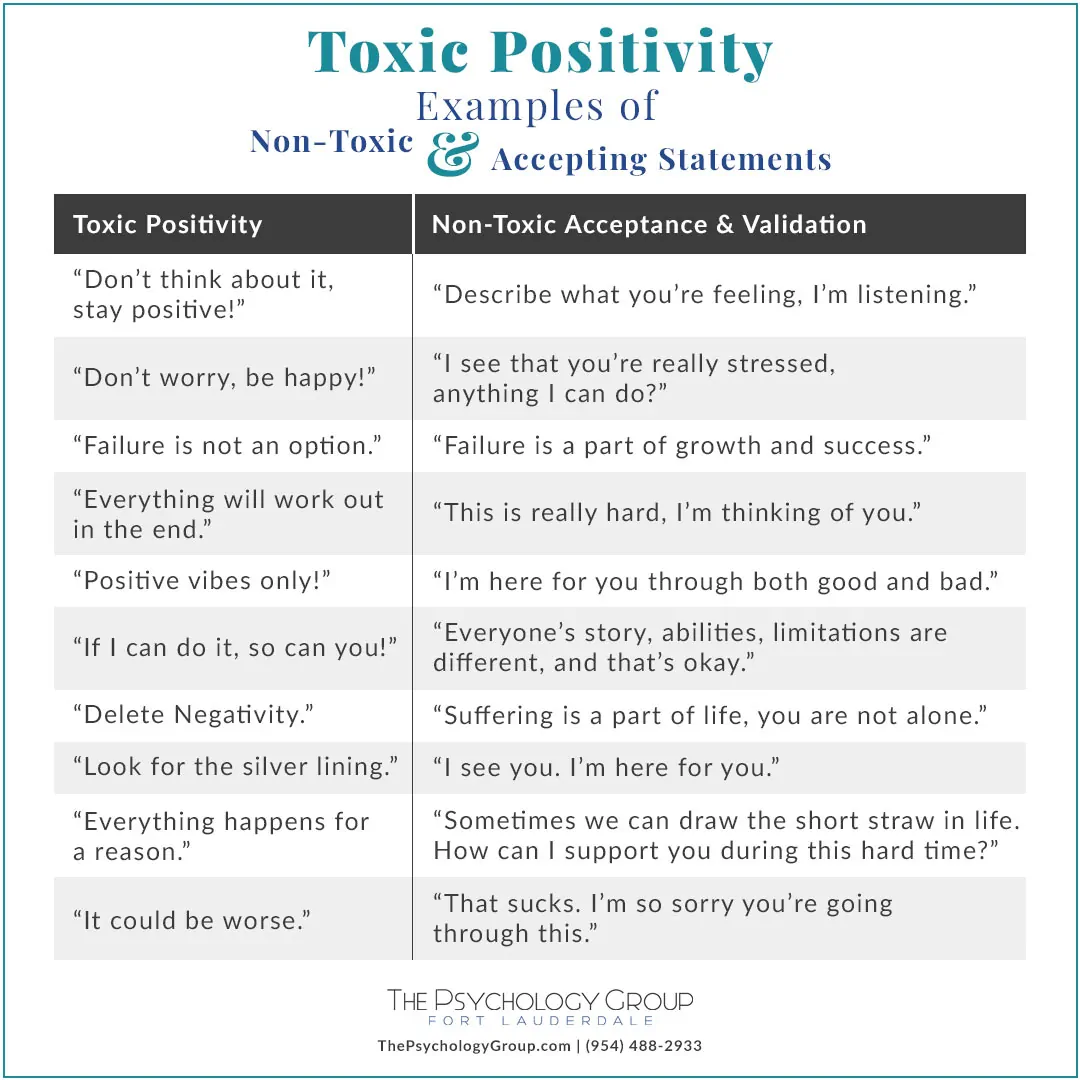“Cheer up, it could be worse!”
In recent years (and certainly since I discovered the book The Happiness Advantage), I’ve tried to live my life in an overwhelmingly positive manner, but more recently I’ve learned that - when taken to extremes - this attitude can create dysfunctional situations, and may even be toxic.
Toxic positivity occurs when performing broad optimistic assertions in complex situations. It’s a “good vibes only”, “everything is awesome” approach which (especially when applied to the challenges that others are facing) acts to deny or invalidate other peoples’ personal concerns, and lowers their sense of self-worth and self-actualisation.
Some situations just can’t be brushed aside with optimism. Pandemics, for example, and everything that comes with them. Positivity may serve as an immediate coping mechanism, but a refusal to confront difficult feelings will only lead to a “bottling-up” of emotions, it may deter people from seeking mental health advice, and this can lead to long-term psychological and even physiological problems.
We’re only trying to help
While I’m sure there are some sociopaths out there, a lot of people who display toxic positivity are doing so with best intentions at heart. They genuinely believe that, by deterring a person from negative thought, they are being helpful and improving a person’s outlook on life.
If you ever feel that you are hiding your true feelings, or that you’re asking somebody else to do the same, this might be a symptom of toxic positivity. If it leads to concerns being buried, painful emotions being suppressed, or the brushing-off of concerns, bad things can follow.
We see it in our workplaces all the time, from executives sugar-coating news around finances or redundancies, to performance review processes which can brush aside negative experiences in favour of focusing on what’s coming next. (I’ve written before about the dangers of giving people an unearned “Good job!”.) An enforced “chin-up” stance can even lead to people being conditioned to be accepting of abusive situations, both domestically and in the workplace.
Don’t shame people for having emotions. People saying “happiness is a choice” make the victim feel guilt for their emotional stance.
How to support the healing process
Healthy emotional responses start with ourselves, and here are a few simple ways to begin:
- Learn to recognise your emotions, and be accepting of them.
- Know what “normal” looks like for you, and attune yourself to spotting signs of an escalating emotional setback.
- Build yourself a support network (even if it’s just a small one) where you feel safe to share when you’re having a bad day.
- Create spaces which help others to do all of the above, too.
While I try to avoid excess positivity these days, that’s not to say that I don’t carefully shape my environment to avoid encountering scenarios which may create a negative spiral. My social media usage has significantly decreased, even just during the course of this year. I stay away from news headlines. And, for my sins, I’ve tried to avoid getting drawn-in to the period of mourning following the passing of Queen Elizabeth II, as I know that I’ve got unresolved grief issues from recent events in my own family.
Knowing this makes it easier for me to avoid creating a toxic positivity environment when I’m managing people. When somebody raises an issue of complicated emotions, rather than deflecting, it’s important to acknowledge them, and construct a plan to help them (and you) cope with their feelings, as they may be living with these emotions for a long time.

With a lot of workplace motivational issues, it can be summarised as “don’t overthink it” - but when it comes to toxic positivity, that’s perhaps not the case. Our natural inclination may be to shut down a situation which needs to be given room to breathe. You can, however, go a long way by genuinely caring for people’s feelings, fostering safe spaces (creating opportunities for people to share their problems outside the scope of their line manager, for example via a Mental Health First Aider) and by generally shaping your workplace initiatives to put people’s feelings first.
Key takeaways 📝
- Don’t let a positive outlook lead to people’s emotions being denied.
- Often people just need an outlet. Be that outlet for them.
- You are the best judge of your own emotions. Don’t allow others to tell you they’re invalid.

